Confident Johanna Konta has the champion's mentality needed to win Wimbledon, says her coach
Wim Fissette believes Konta has what it takes to win a maiden grand slam, but first she must settle an old score against Caroline Garcia, who knocked her out of Indian Wells
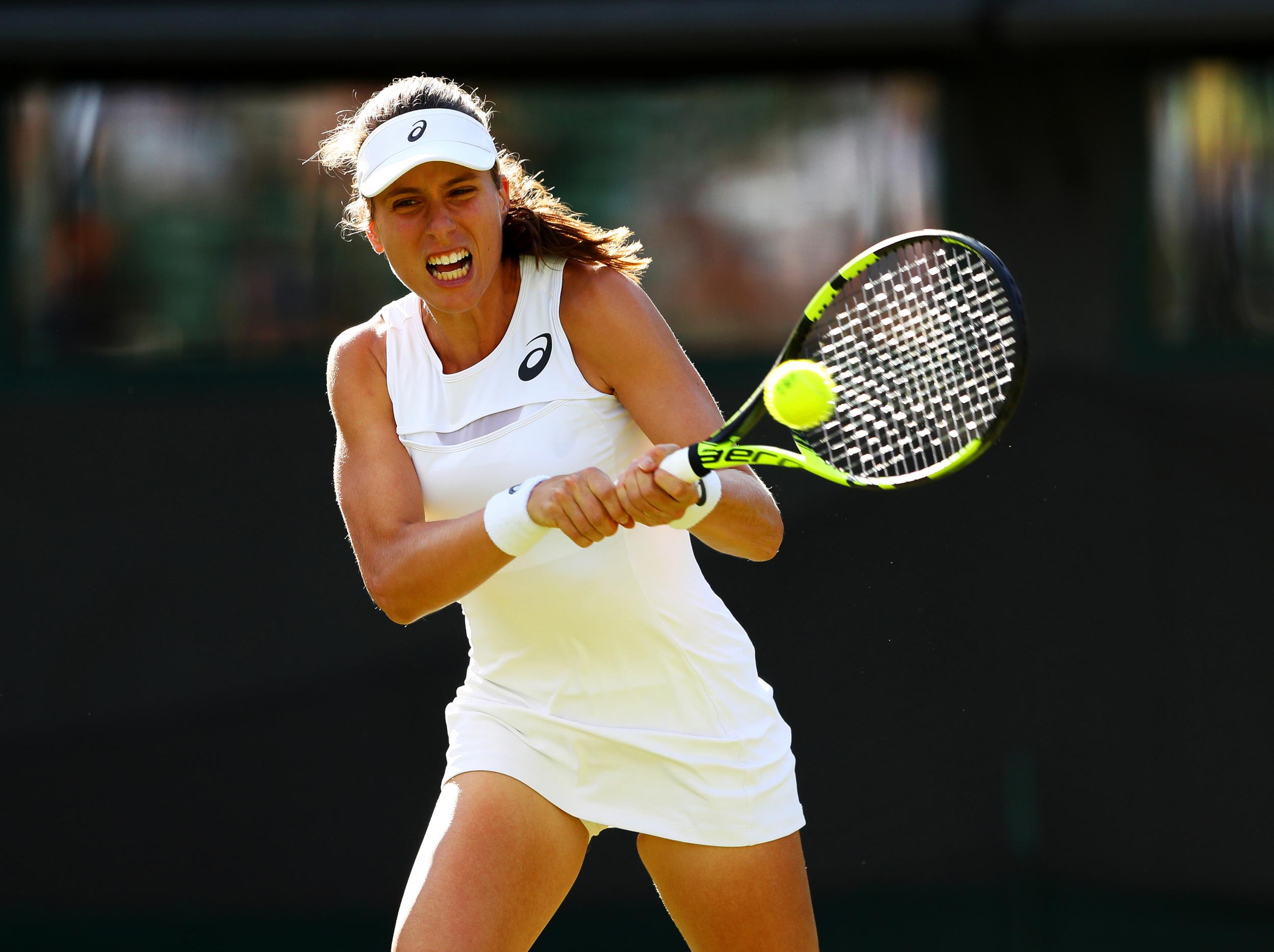
Your support helps us to tell the story
From reproductive rights to climate change to Big Tech, The Independent is on the ground when the story is developing. Whether it's investigating the financials of Elon Musk's pro-Trump PAC or producing our latest documentary, 'The A Word', which shines a light on the American women fighting for reproductive rights, we know how important it is to parse out the facts from the messaging.
At such a critical moment in US history, we need reporters on the ground. Your donation allows us to keep sending journalists to speak to both sides of the story.
The Independent is trusted by Americans across the entire political spectrum. And unlike many other quality news outlets, we choose not to lock Americans out of our reporting and analysis with paywalls. We believe quality journalism should be available to everyone, paid for by those who can afford it.
Your support makes all the difference.Johanna Konta’s mental strength has faltered only once in the seven months that Wim Fissette has been coaching her. It was in March at Indian Wells when the 26-year-old Briton played Caroline Garcia, who will be on the opposite side of the net again here on Monday in the fourth round at Wimbledon.
Konta had made a fine start to the year, but in the third round in California she faded after winning the opening set. Garcia won the tie-break at the end of the third set 7-1.
“That was for me a strange match where she was not really able to control her emotions very well,” Fissette said here as he looked ahead to Konta’s rematch with the 23-year-old Frenchwoman. “In the tie-break in the third set, she was not really ready to compete at her best because I saw her shaking her head after the first point of the tie-break.
“We spoke after the match and I said: ‘Johanna, if there’s something that I expect from you, it’s to be mentally right there, because it is one of your strengths.’ Her mental side is for sure one of her strengths and I say we have to keep using it and have to be aware of staying positive out there.”
He added: “That is the only match where I have thought that. We spoke about it and came to the conclusion that she is also human and she can have days when she finds it hard to control her emotions. You can do as many breathing exercises on court as you want, but days will come when it is just hard to control your emotions. That was a day like that.”
The Indian Wells experience was out of character for a player who has worked tirelessly to eradicate the mental meltdowns which blocked her early progress. Konta, who has worked closely with mental coaches, is 26 but has been playing regularly in the biggest tournaments only in the last two years.
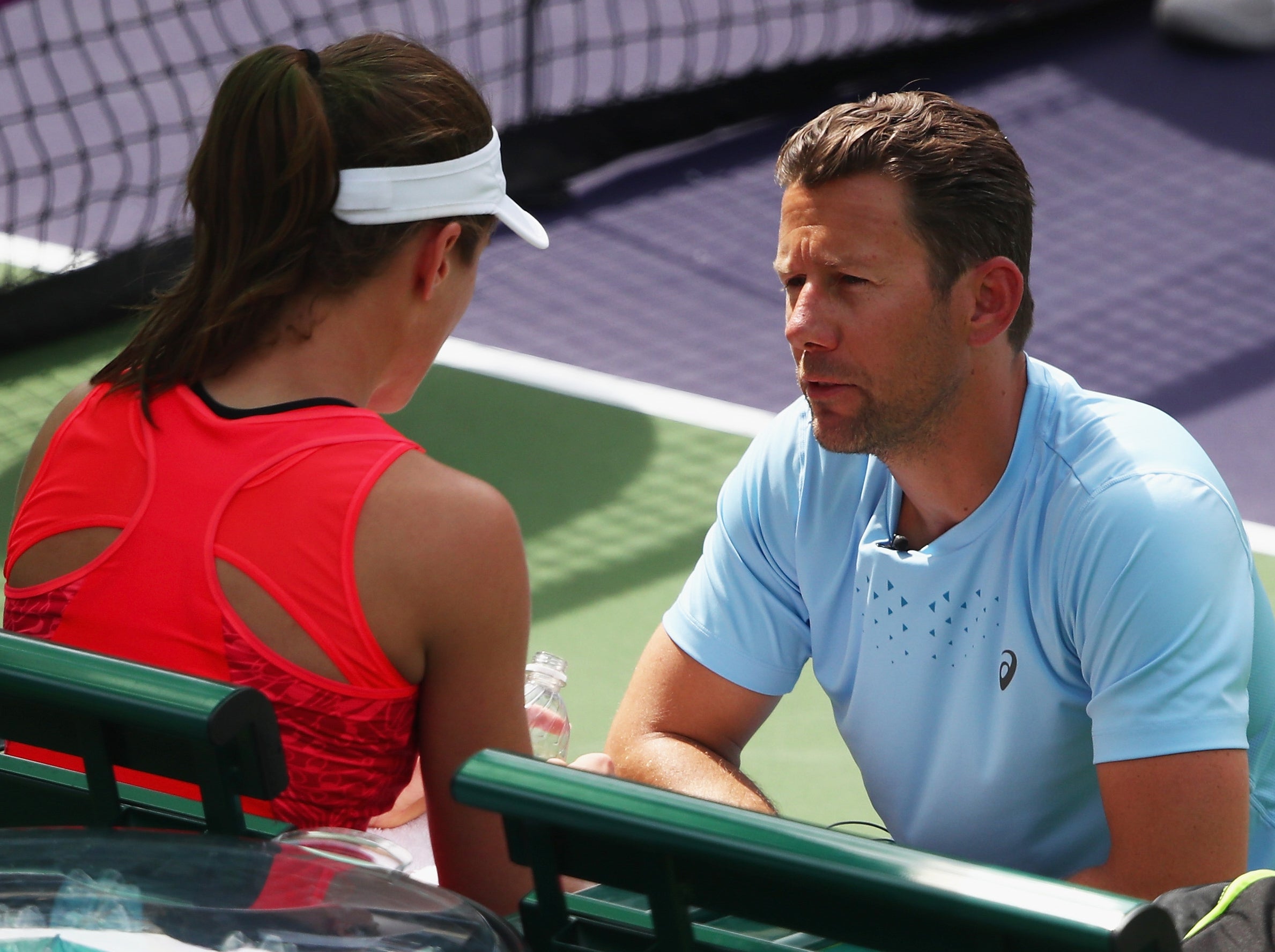
Fissette, a hugely experienced coach who has also worked with Kim Clijsters and Simona Halep, was encouraged by the tournament immediately after Indian Wells as Konta enjoyed the biggest triumph of her career by winning the Miami Open.
“After that match in Indian Wells, where she wasn’t as mentally strong as I expected, she did great in Miami and stayed really strong and showed positive emotions,” he said.
The Belgian does not think the experience in Indian Wells will weigh heavily on Konta’s shoulders here. “She beat [Garcia] quite a few times in the past,” he said. “She has got to be confident that she can beat her.
“I will watch the match from Indian Wells to look again at what happened – what was working and what was not working so well. And I will watch [Garcia’s] last match here against [Madison] Brengle.”
Fissette appreciates that Konta is most comfortable when she stays inside her “bubble” and does not display her emotions. “Johanna is very focused on her mental state and she’s trying to stay in a neutral one,” he said. “You will never see her very negative or very positive on the court. It will be more like neutral. That’s her.”
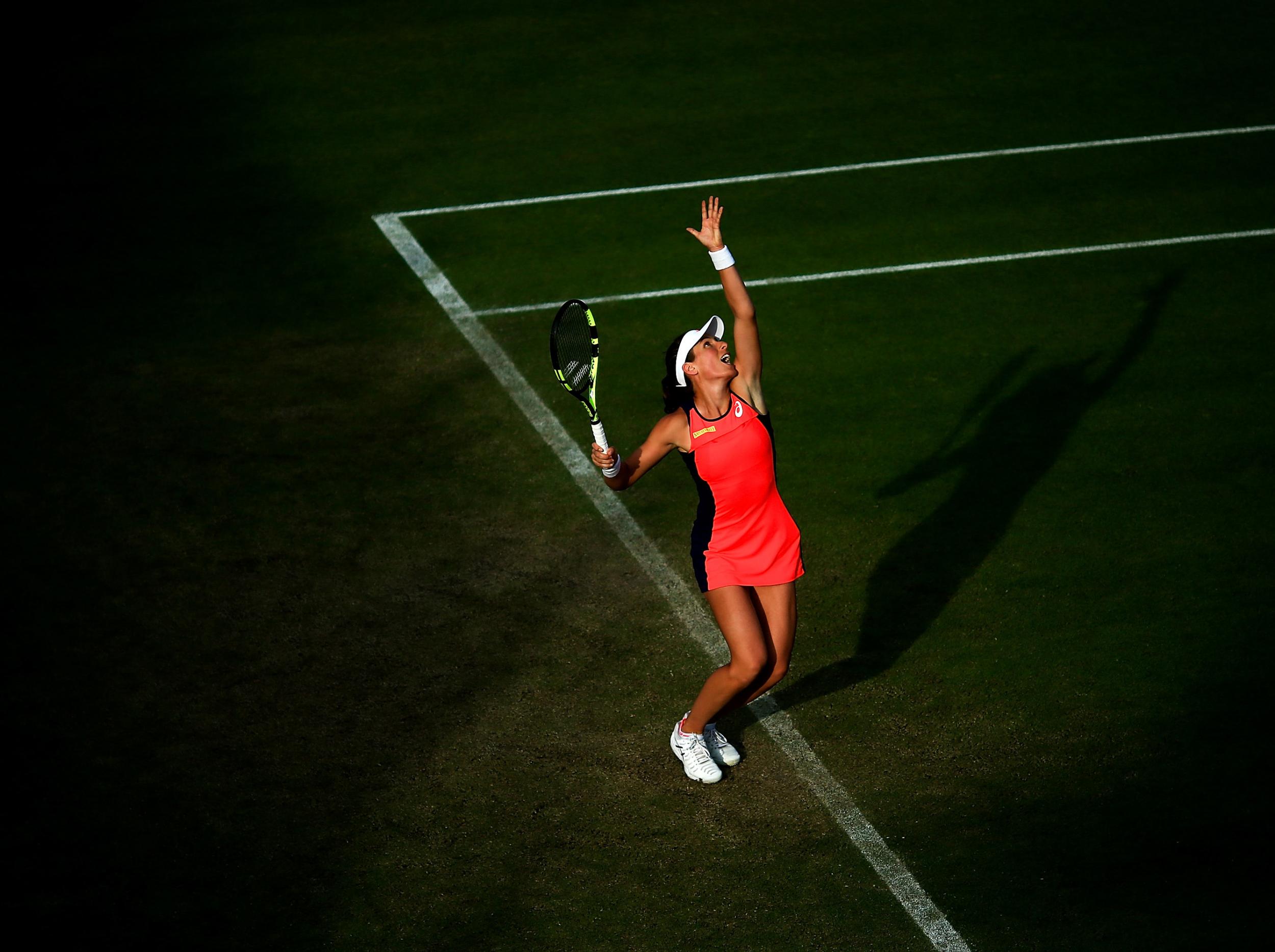
However, he has in the past suggested that it might help Konta if she was more emotional on the court. He explained: “In Miami, I asked her: ‘You always stay quite neutral, even when things are going not really well. Maybe it’s better to break a racket once in a while and get the frustrations out and then you can continue. You don’t have to do it all the time but maybe once.’
“She said: ‘I have experience in the past that it’s something that is not helping me, for sure not a negative way.’
“But using more positive body language is for sure something that is helping her, like screaming after a really good point or showing her fists. She knows that is helping her. She has to stay open for that.”
Fissette said it would be impossible for Konta to shut out completely the fact that this is her home Grand Slam tournament. “I don’t think anybody is able to do that completely,” he said. “But as she’s using different tricks or exercises to control staying in this moment that is really helping her.”
Fissette thinks the way Konta handled the pressure in her marathon three-hour victory over Donna Vekic last week will stand her in good stead.
“She stayed so calm,” Fissette said. “It was a very important match for her, especially here at Wimbledon, on Centre Court. She felt very comfortable on the court. She also got a lot of confidence that she is able to play well under very high pressure on this court, so mentally it will help her in the future for sure.”
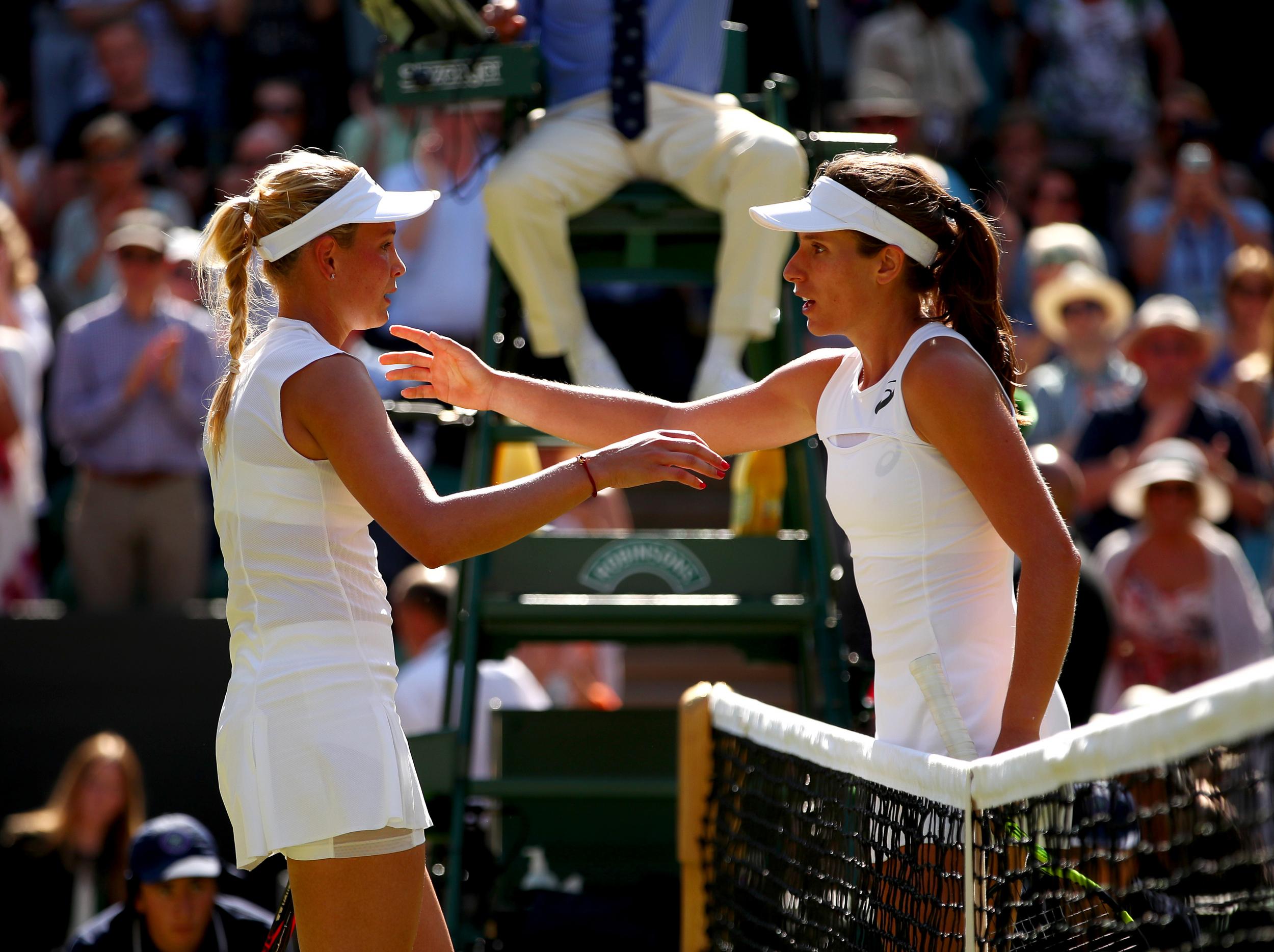
Fissette thinks Konta can learn to take more advantage of the support of the home fans. “It’s still new, but I think she has to learn how to appreciate it more and use it more as a positive energy to her.
“I think she’s growing also in that way, of feeling the energy of the fans, because before she was just trying to be in herself. But I’m 100 per cent sure that using the fans in the right way can help you in difficult moments.”
Fissette said that what had surprised him most about Konta since he started working with her was her ability to handle difficult situations. He pointed to how Eugenie Bouchard and Simona Halep had had difficulty in the following season following their breakthrough years. Konta, in contrast, has gone from strength to strength ever since her big breakthrough in the second half of 2015.
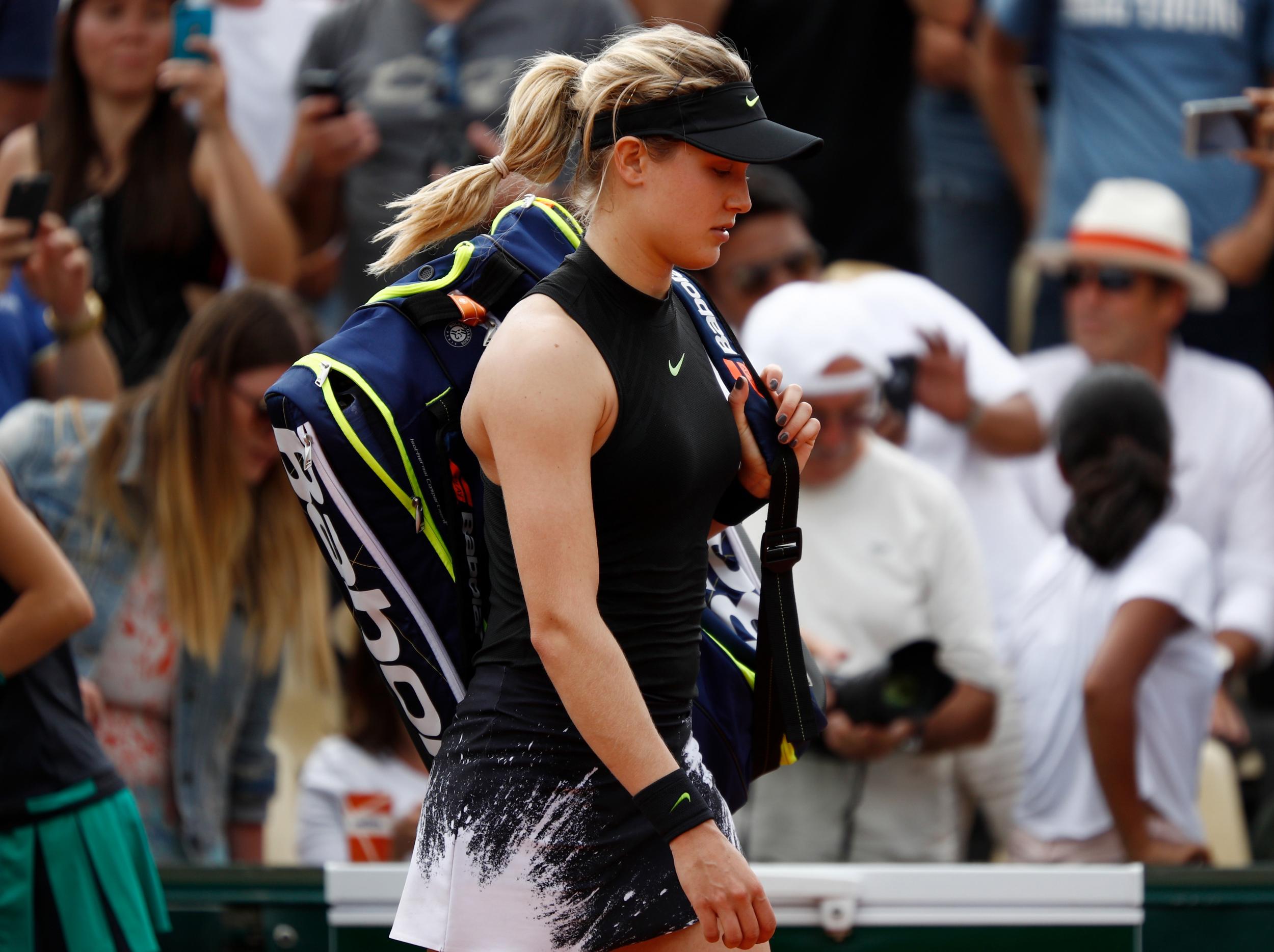
“She's 26 years old and at most of the tournaments it is like the second or third time she has played there,” he said “Some 21-year-olds are there for the sixth time. She still has to learn a lot.”
Although she is No 7 in the world, Konta started this Wimbledon having won only one match in her five previous appearances here. “It’s all kind of new for her,” Fissette said. “She has never reached this far at Wimbledon before, so it’s a completely new situation. She’s learning how to handle these situations.”
Six years ago Andy Murray labelled Garcia a future world No 1 after watching her test Maria Sharapova at the French Open. The world No 22 has yet to live up to that billing but reached the quarter-finals of her home Grand Slam tournament last month.
Fissette thinks Garcia is “a really, really talented player”, though he also sees areas of her game that Konta can exploit. “She has got a great game with some big strokes, but also she does not always use her shots at the right moment and her decision-making I don’t think is that good,” he said.
“On a good day, for sure, she is very difficult to beat, but on a consistent basis? She has been getting better year on year for four years, but she is not making the big steps.”
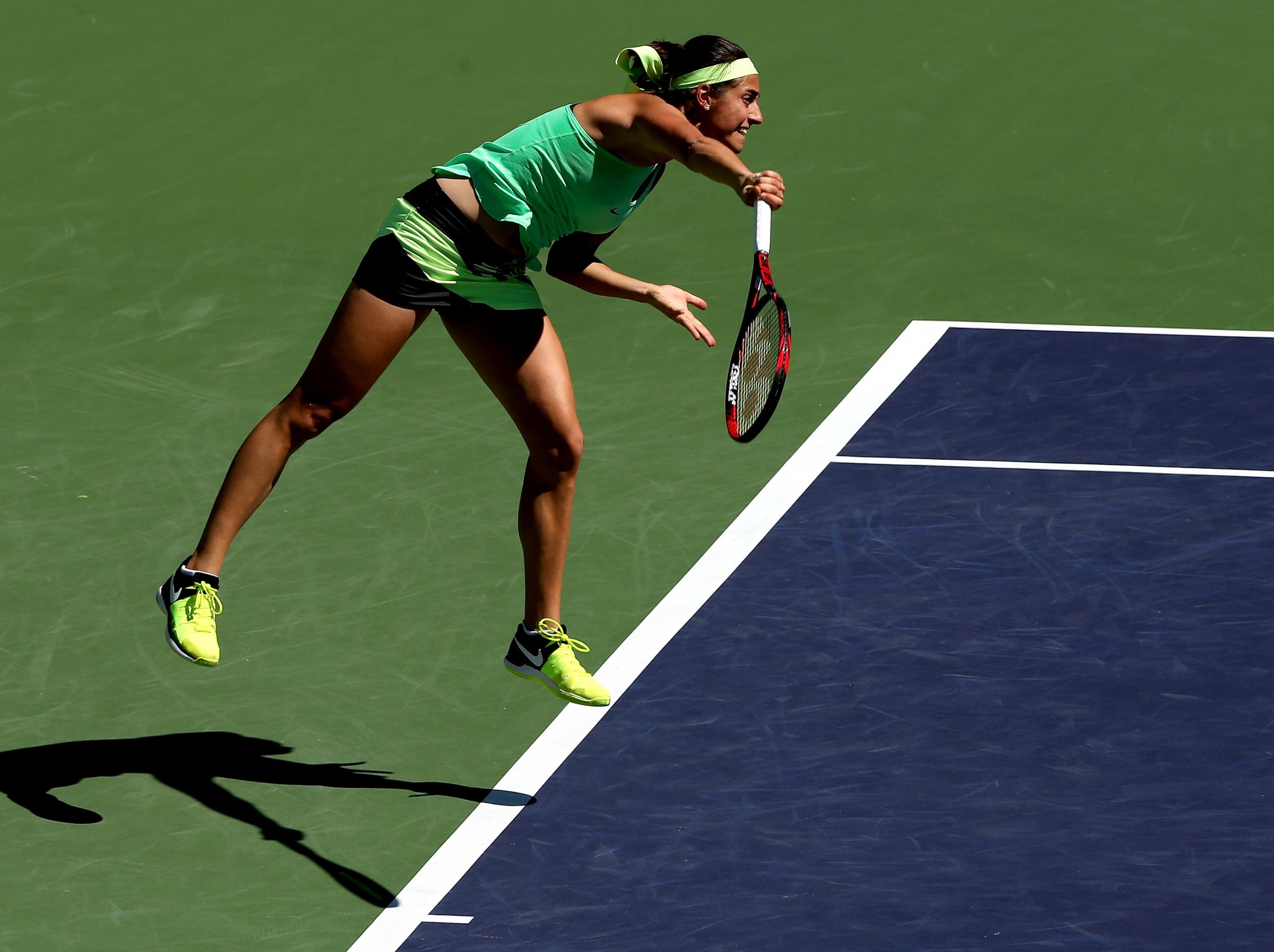
While Fissette, like Konta, is not looking beyond the next match, he agrees that the women’s tournament is wide open. “Everybody in the fourth round can win Wimbledon, which is very exciting,” he said. “The men’s draw is a bit different.”
Asked what made the difference between a top player and one who can win a Grand Slam title, Fissette said it boiled down to having a “champion mentality”. He added: “I don’t think there will be 10 players [at Wimbledon] who believe in themselves, so there are few with the champion mentality, [who believe] that they are the ones.”
Does he reckon Konta believes she can win Wimbledon? “I think so,” he said. “She will not express it, but for sure she is confident in her game and she is confident about herself.”
Join our commenting forum
Join thought-provoking conversations, follow other Independent readers and see their replies
Comments